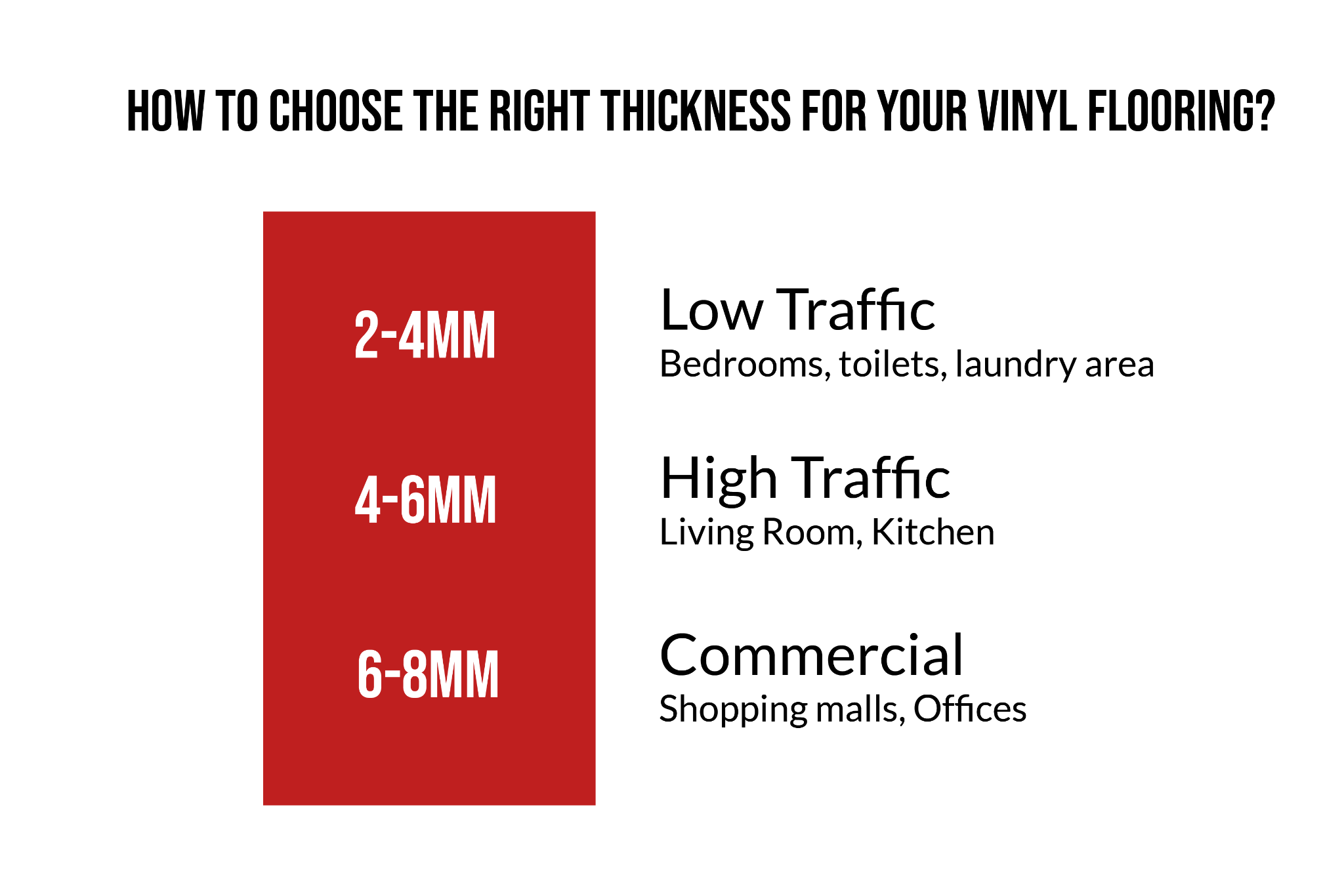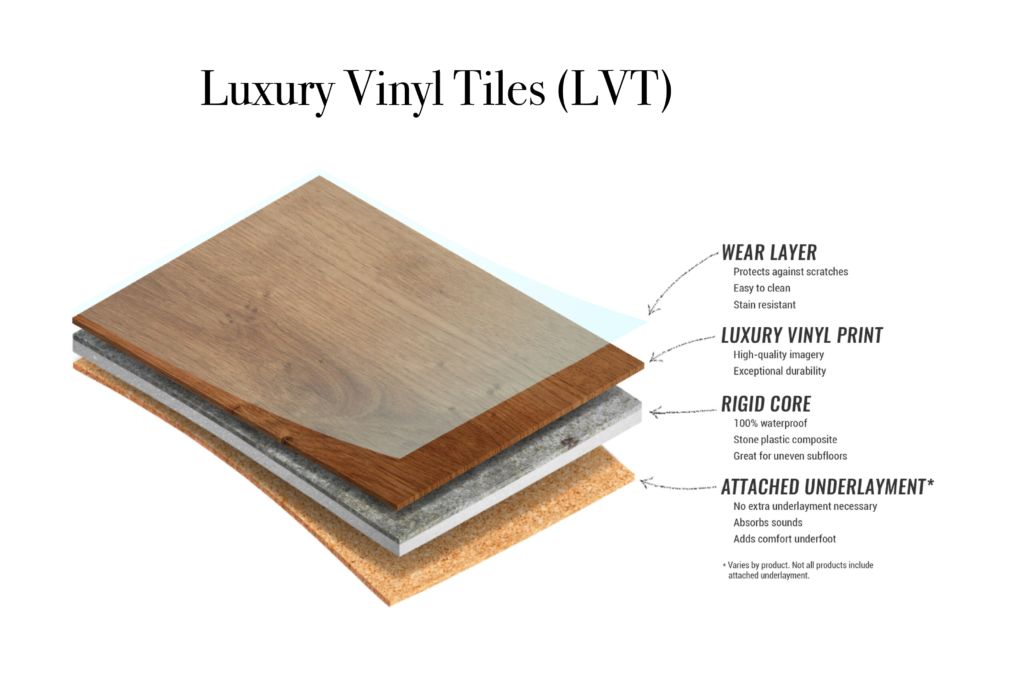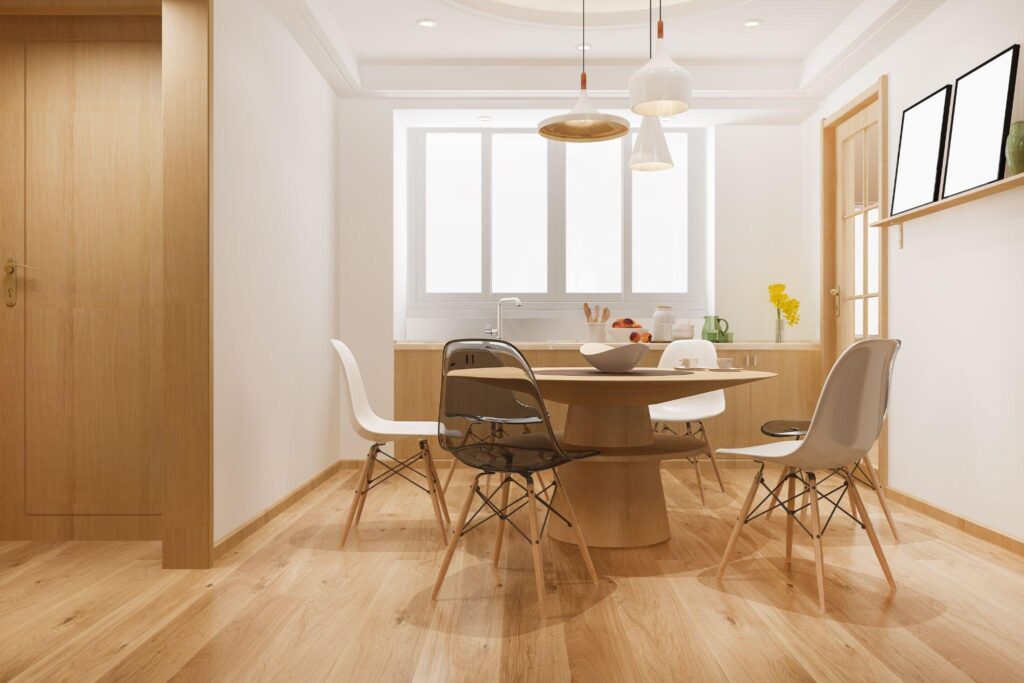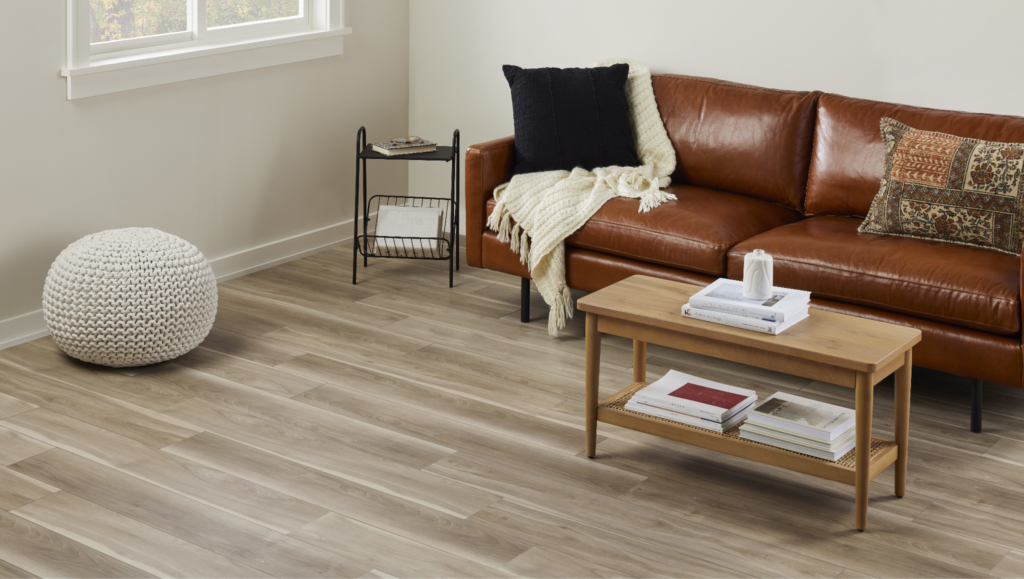When it comes to choosing vinyl flooring for your home or office, one crucial factor to consider is the quality of the product. While thickness is often associated with durability, it’s important to understand that thicker vinyl doesn’t necessarily mean it’s of higher quality.
In this article, we will explore the key factors to help you determine the quality of your vinyl flooring and make an informed decision.
Why Does Vinyl Thickness Matter?
Vinyl thickness plays a role in determining the durability and comfort of the flooring. However, the wear layer, rather than the overall thickness, is the primary factor that protects the vinyl from scratches, stains, and water damage. Thicker wear layers are recommended for areas with high foot traffic, such as kitchens and hallways. For low-traffic areas like bedrooms, a thinner wear layer combined with a thicker vinyl plank/tile or sheet can offer stability and comfort underfoot.

Vinyl Flooring Thickness Guide
Vinyl flooring is available in various thicknesses, ranging from 2mm to 8mm+. Thicker vinyl is typically used in commercial spaces with heavy foot traffic, while residential areas commonly utilize 4mm to 6mm thickness in high-traffic zones and 4mm or less in low-traffic areas like bedrooms. Vinyl Flooring Singapore Ltd offers wood grain finish LVT flooring which starts from .5mm thick onwards
Impact of Subfloor on Vinyl Thickness
The condition and type of subfloor also influence the choice of vinyl thickness. For concrete subfloors, ensure they are clean and even. Thinner vinyl can be used on concrete as it provides stability and support. However, when installing over wood subfloors, an additional layer of wood measuring at least 0.5 CM thick is necessary for added stability. Thicker vinyl is recommended for tiled subfloors like ceramic, porcelain, or terrazzo.
Types of Vinyl Flooring
To complicate matters further, there are different types of vinyl flooring to consider, each with its own impact on thickness and durability. Modern advancements have made vinyl a popular flooring choice due to its versatility and aesthetic options. Here are three common types:
Luxury Vinyl Tiles (LVT): LVT provides versatility and design options similar to SPC. With a rigid construction, LVT is highly durable and resistant to scratches, dents, and stains. Some LVT variants also feature UV inhibitors, protecting the flooring from the sun’s harmful rays and preventing fading. Thinner, more flexible vinyl is recommended for areas with high foot traffic, while PVC plastic composite is suitable for less demanding spaces. LVT offers a low-maintenance and cost-effective solution for those seeking the beauty of stone tiles.
Stone Polymer Composite (SPC): SPC accurately replicates the natural beauty of solid hardwood, offering warmth and an inviting ambiance to your space. Thanks to advanced printer technology, SPC can mimic the texture and characteristics of different wood species, including wire brushed and handscraped finishes. SPC typically features a rigid construction and a thicker, durable wear layer, making it suitable for high foot traffic areas. Some SPC options have waterproof cores, ensuring their longevity.
Vinyl Sheet: Vinyl sheet flooring consists of multiple layers, including a photographed image of patterns like wood, concrete, marble, or stone. It is produced in large rolls, allowing for endless design possibilities. Vinyl sheet provides superior moisture protection, making it an ideal choice for large commercial spaces with high foot traffic or moisture concerns. However, if irreversibly damaged or stained, replacing the entire floor or cutting out and replacing a section can be costly and challenging to match the original pattern.
When choosing vinyl flooring, selecting the right thickness is important, considering factors such as foot traffic, subfloor type, and the specific type of vinyl flooring. Remember that thicker vinyl doesn’t always guarantee higher quality, as the wear layer is the key protective element. Assessing the condition of the subfloor, understanding the different types of vinyl flooring available, and consulting with flooring experts can help you make an informed decision and ensure the vinyl flooring you choose is of high quality and suits your specific needs.



